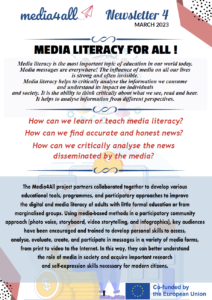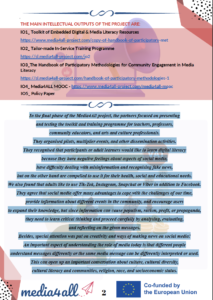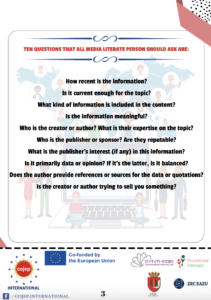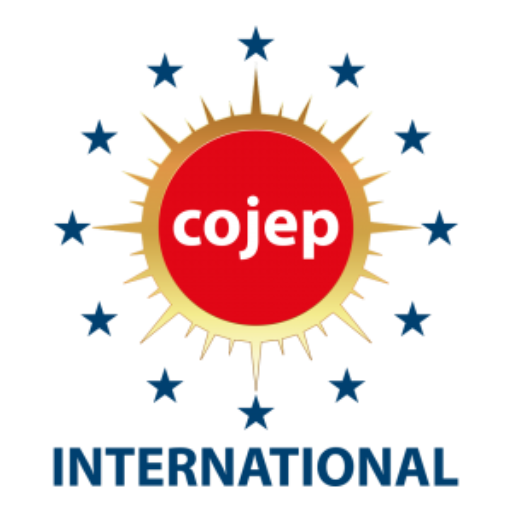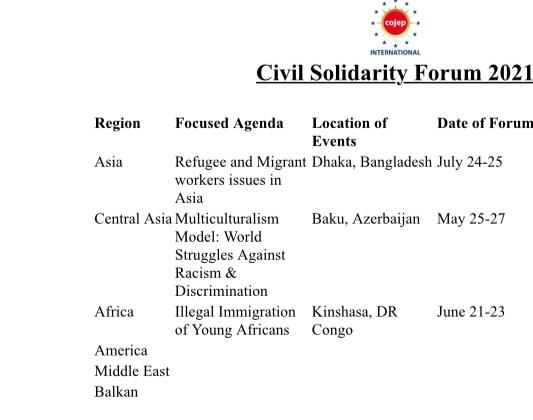MEDIA4ALL PROJECT NEWSLETTER: MEDIA LITERACY FOR ALL !

Media literacy is the most important topic of education in our world today. Media messages are everywhere! The influence of media on all our lives is strong and often invisible. Media literacy helps to critically analyse the information we consume and understand its impact on individuals and society. It is the ability to think critically about what we see, read and hear. It helps to analyse information from different perspectives.
The Media4All project partners collaborated together to develop various educational tools, programmes, and participatory approaches to improve the digital and media literacy of adults with little formal education or from marginalized groups. Using media-based methods in a participatory community approach (photo voice, storyboard, video storytelling, and infographics), key audiences have been encouraged and trained to develop personal skills to access, analyse, evaluate, create, and participate in messages in a variety of media forms, from print to video to the Internet. In this way, they can better understand the role of media in society and acquire important research and self-expression skills necessary for modern citizens.
In the final phase of the Media4All project, the partners focused on presenting and testing the toolkit and training programme for teachers, professors, community educators, and arts and culture professionals. They organised pilots, multiplier events, and other dissemination activities. They recognised that participants or adult learners would like to learn digital literacy because they have negative feelings about aspects of social media, have difficulty dealing with misinformation and recognising fake news, but on the other hand are compelled to use it for their health, social and educational needs. We also found that adults like to use Tik-Tok, Instagram, Snapchat or Viber in addition to Facebook.
They agree that social media offer many advantages to cope with the challenges of our time, provide information about different events in the community, and encourage users to expand their knowledge, but since information can cause populism, racism, profit, or propaganda, they need to learn critical thinking and proceed carefully by analysing, evaluating, and reflecting on the given messages. Besides, special attention was put on creativity and ways of making news on social media! An important aspect of understanding the role of media today is that different people understand messages differently or the same media message can be differently interpreted or used. This can open up an important conversation about culture, cultural diversity, cultural literacy and communities, religion, race, and socioeconomic status.
Pdf version of the newsletter: NEWSLETTER (4)
